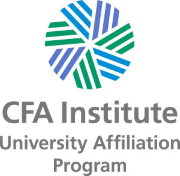Selected Topics in IFRS Accounting
Selected Topics in IFRS Accounting
ΧΡΔΠΧΑ
Teacher: S. Anagnostopoulou
ECTS: 7.5
Course Type: Elective
Semester: 5th or 7th
Teaching Hours: 4
Prerequisities:
Course Scope
The purpose of this module is to cover the basic concepts of accounting recognition and measurement related to a number of specific IFRSs.
There is performed a thorough analysis of the Conceptual Framework of IFRS, in the European Union and elsewhere in the world, along with coverage of more specialised topics on accounting for inventories, tangible and intangible assets and their impairment. The module covers in detail IFRS accounting for financial instruments (classification, recognition and measurement after initial recognition). Other topics analysed in this module involve concepts covered by specific IFRSs e.g. the calculation of basic and diluted earnings per share, accounting for provisions and contingent assets and liabilities, revenue recognition, change in accounting policies and estimates, related party transactions, recognition of operating segments.
All accounting topics are covered and analysed through the systematic use of numerical examples and book-keeping exercises, so that relevant accounting recognition and treatment is presented in its complete form
Course Outline
– Conceptual Framework of IFRS: content and analysis, the role and function of the International Accounting Standards Board (IASB), fundamental and enhancing characteristics of accounting information based on the Framework, process followed in order to produce, modify and adopt new IFRS, IFRICs.
– IFRS accounting for inventories (IAS 2) and Agriculture (IAS 41).
– Tangible asset (PP&E) recognition and measurement after initial recognition, cost and revaluation models, accounting treatment for costs incurred on PP&E after initial recognition, depreciation principles according to IFRS – component approach, exchanges between non-monetary assets (IAS 16).
– Investment properties (IAS 40)
– Interest capitalisation when acquiring or self-constructing PP&E (IAS 23).
– Accounting for state grants (IAS 20).
– Impairments, impairment reversals (IAS 36).
– Asset depletion (IFRS 6).
– Intangible assets, Research and Development Expenses – R&D, accounting for goodwill (IAS 38).
– Provisions, contingent liabilities and assets, provision of warranties and guarantees- accounting handling (IAS 37).
– Earnings per share, basic and diluted (IAS 33)
– Financial instruments: Classification of financial instruments by their issuer into equity or debt instruments based on IAS 32, accounting for compound instruments, convertible bonds, split accounting: separation of convertible debt into its debt and equity components
– Financial instruments: Long-term obligations, premium/discount bond issuance, bond premium/discount amortisation, effective interest rate method, zero coupon notes issuance: accounting treatment, measurement of long-term obligations at fair value (IFRS 9)
– Financial instruments: Accounting recognition and measurement for financial assets and liabilities; debt, equity, derivative instruments; SPPI (solely payments for principal and interest) test (IFRS 9)
– Financial instruments: Bookkeeping (journalising, use of T accounts) for accounting events related to financial instruments: measurement at fair value through profit and loss/at fair value through other comprehensive income, measurement at amortised cost, expected loss model (IFRS 9).
– Classification of investments into investment in affiliates (IAS 28) and subsidiaries (IFRS 10), basic principles.
– Accounting for leases (IFRS16)
– Revenue recognition – 5 step process, specialised topics on revenue recognition (provision of guarantees and warranties, sales returns) (IFRS 15).
– Change in accounting policies and estimates (IAS 8).
– Related party transactions (IAS 24).
– Events after the end of the reporting period (IAS10).
– Segment reporting (IFRS 8).
– Interim financial reports (IAS 34).
Suggested Reading
– Module material uploaded on Eclass
– Kieso E.D., Weygandt J.J., Warfield, D. (2019). Intermediate Accounting – IFRS Edition, 2nd Edition, John Wiley and Sons, Broken Hill Publishers (for Greek translation).
– Karagiorgos, T., Petritis, A. (2017). International Accounting Standards, Karagiorgos Publishing.
Relevant literature:
– Kontos, G. (2014). Financial Accounting – According to Greek and International Accounting Standards, Diplografia Publishing.
– Negakis, C. (2015). International Financial Reporting Standards – Theory and Applications, Aeiforos Logistiki Publishing.
– Elliott/Elliott, J. (2015/2017), Financial Accounting and Reporting, Pearson, 17th or 18th Edition.
-Alexander/Britton/Jorissen/Hoogendoorn/van Mourik (2017), International Financial Reporting and Analysis, Cengage, 7th Edition.
– Stolowy/Ding (2015), Financial Accounting and Reporting – A global perspective, Cengage, 5th Edition.
– Picker/Clarck/Dunn/Kolitz/Livne/Loftus/van der Tas (2016), Applying International Financial Reporting Standards, Wiley, 4th Edition.




